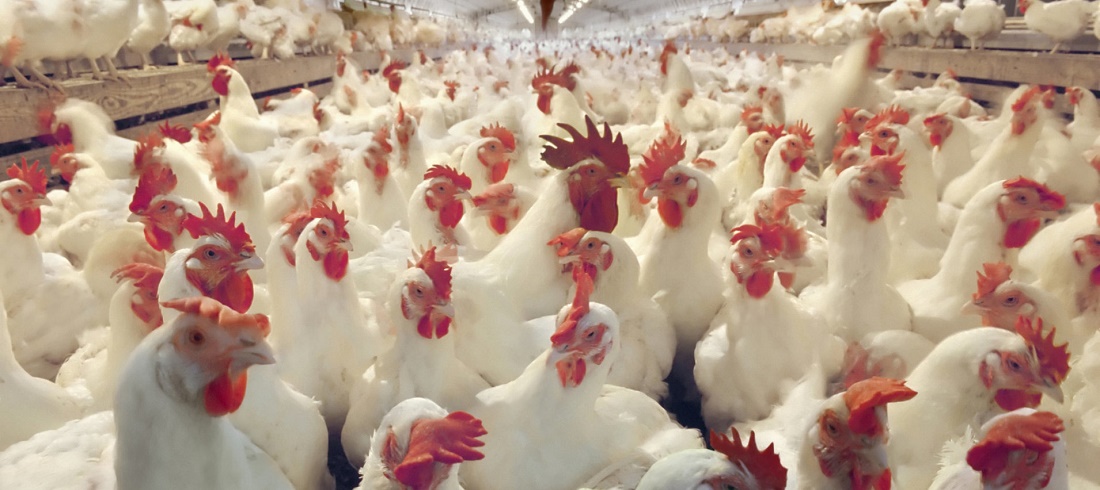
Avian flu could cause economic losses of R$21bn in Brazil
Jul, 10, 2023 Posted by Gabriel MalheirosWeek 202328
An eventual large-scale outbreak of avian flu in industrial poultry farms in Brazil could have an annual impact of R$21.7 billion on the world’s largest exporter of chicken. The estimate is from the Center for Agribusiness Studies of Fundação Getúlio Vargas (FGV Agro).
The institution conducted the study on the economic loss in this hypothetical scenario at the request of the National Union of Federal Agricultural Inspectors (Anffa Sindical). The study considers the direct and indirect effects on exports, income generation, salaries, taxes, and employment.
Talita Priscila Pinto, a doctor of Applied Economics and researcher at FGV Agro, said the study is based on the possibility of an uncontrolled outbreak in industrial production – something that hasn’t happened in Brazil yet since the outbreaks detected so far have been in wild birds and one in domestic breeding.
“When a certain sector of the economy suffers, there is an impact on the others related to it,” she said. “We would not see this impact immediately, but it would have repercussions over time.”
The direct damage to the agricultural sector alone is estimated at R$11.8 billion.
The study also predicts a R$1.3 billion drop in tax revenue and a R$3.8 billion drop in income for the national economy. According to the FGV Agro specialist, the impact in the purchase of inputs, transportation, and other items is included in this income category.
The study also estimates a potential loss of 46,000 formal jobs in several sectors, including 26,000 in the agriculture sector. With this, there would be an impact of nearly R$1.25 billion in salary payments.
See below the volume of Brazilian poultry meat exports measured in tonnes between Jan 2019 and May 2023. The data is from DataLiner.
Brazilian poultry meat exports | Jan 2019 – May 2023 | WTMT
Source: DataLiner (click here to request a demo)
For the president of Anffa Sindical, Janus Pablo Macedo, the diagnosis of FGV Agro has an important role in bringing indicators and projections of how the avian flu can negatively affect the economy.
“Brazil has the capacity to act in the face of a possible outbreak. We are working with the Ministry of Agriculture and state agricultural auditors to avoid such effects,” he said in a note.
The FGV Agro analysis also shows that for every R$100 loss in the value of poultry meat exports, the commerce sector could lose R$11, that is, the indirect negative impact on retailers and wholesalers would reach 11% in losses to the poultry chain.
According to the study, there would also be an 8% reduction in the production of animal feed based on corn and soy, of 4% in overland transportation, among others.
The Brazilian Association of Animal Protein (ABPA) preferred not to comment on the study.
Since May 22, Brazil has been in a state of animal health emergency due to the arrival of avian flu in wild birds. With the state of emergency declared by the Ministry of Agriculture, measures to prevent the spread of the disease in the country were strengthened.
Brazil remains with the status free of the disease, and before the World Organization for Animal Health (OIE), since no outbreaks of avian influenza were detected in commercial farms. However, the disease has been detected in wild birds in the three southern states, Brazil’s largest chicken-producing region, which raised the alert in the Brazilian market. In addition, there was also an outbreak in domestic duck farms in Serra (ES). So far, there are 61 outbreaks in total in the country.
The main concern of the production chain is that buying countries will impose embargoes on Brazilian chicken, which is only recommended by the OIE when the disease is detected in industrial production.
However, contrary to the international health authority, the government of Japan temporarily suspended the purchase of poultry and its byproducts from Espírito Santo, due to the outbreak found in a domestic duck, in the municipality of Serra.
The fear of the Brazilian government and the industry is that other importers will follow suit. Japan is considered very strict in health surveillance.
According to the Ministry of Agriculture, the Brazilian authorities have sent a clarification to Japan and are awaiting a response.
-
Ports and Terminals
May, 20, 2021
0
Ford will import up to 30,000 vehicles per year through the Port of Vitória
-
Shipping
Dec, 06, 2019
0
Brazil reelected as member of IMO Council
-
Shipping
May, 10, 2024
0
Brazil January-March Port Throughput Reaches 302.9 Million Tonnes
-
Dec, 02, 2021
0
Brazil sets record in US gas purchases after water crisis

